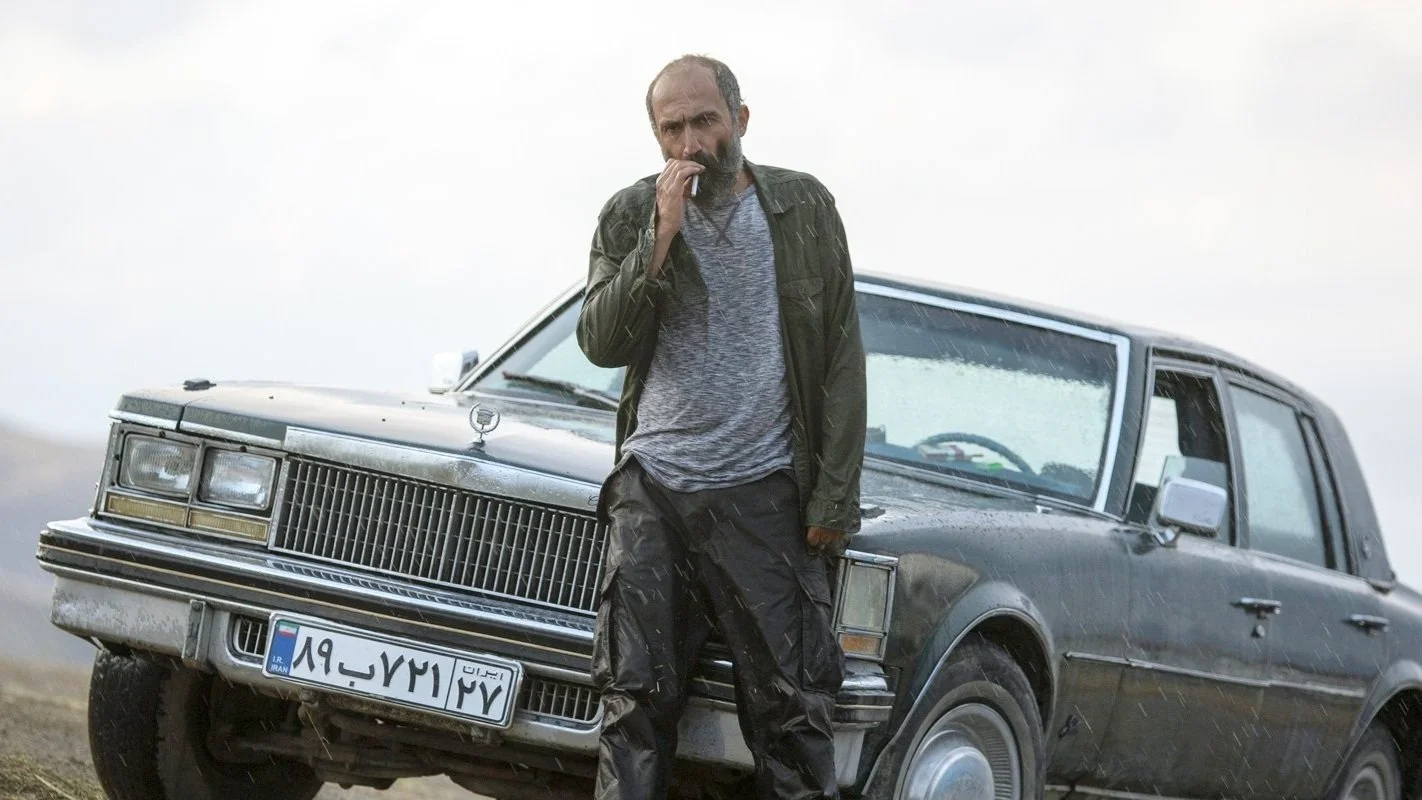Atabai
In Niki Karimi’s Iranian drama a middle-aged architect returns to his home village to be confronted by a whole set of new emotions.
The publicity for Atabai suggests that this is an Iranian film unlike any other that we have seen and that seems fair enough. For a start it is not set in Tehran and in utilising rural locations it has none of the minimalism found in those films by Abbas Kiarostami which played out on country roads. Here the setting is a village in the province of Azerbaijan and the central figure is Kazem (Hadi Hejazifar), a successful architect who had come from there and is now in middle-age. His return to his old home reunites him with his father (Yoosefali Daryadel) and with his old friend Yahya (Javad Ezzati), who had stayed in the village and has just become a widower. Outwardly Kazem’s life has been a success, but we soon realise that he is something of an empty shell, a man who has not found happiness.
Although Atabai takes place over a short period of time, past events play a major part in the story. On two occasions Kazem’s life has taken a tragic turn: as a student at university he had been unable to marry the woman he loved and, even more dramatically, his sister, having been forced into marriage at the age of fifteen to a man who had treated her badly, had committed suicide. One result was that Kazem had developed a close bond with her child, his nephew Aydin (Danial Noroush). The two of them travel together and in the village they encounter two sisters, a younger one (Mahlagha Meynoush) who attracts Aydin and an older one (Sadari Dolatshahi) who might at last enable Kazem to love again. But past and present continue to intertwine with hidden facts linked to the suicide emerging and possibilities of reconciliation arising (both Kazem with his father and Aydin with his despite the latter having long ignored him).
Atabai is the work of Niki Karimi, a well-established actress who since 2005 has also been a director working on films written wholly or in part by her. In the circumstances it is not surprising to find that Atabai is directed with confidence and the colour photography makes good use of the unfamiliar locations. The storytelling, however, is less adroit. The basic situation is clear enough, but the references to past events made during Kazem’s return to a community where many people know him lead to scenes in which all too often we don't know the relationships or who is being referred to when fresh names are heard.
The players are competent enough. Nevertheless, one feels distanced from the film not only because the narrative can be confusing but on account of the fact that Atabai often suggests a film made for local consumption with reliance on audiences being familiar with the context in which it is set. One simple example of this lies in the way that Kazem is often called Atabai. Rather belatedly, Kazem mentions that he has now become Atabai – but only a statement by Karimi in the film’s publicity indicates that Atabai means great man in Turkish. Her comments also refer to the statue of a unicorn rooster seen in the yard of Kazem’s house and we are told of its significance as a symbol of divine power. None of this is apparent from just watching the film. The dialogue in the movie is apparently a mixture of Azari and Farsi but what may well be pertinent as distinctive cultural features remain indistinct for outsiders. From time to time Kazem is given voice-over monologues to express his thoughts and here it seems that he is very ready to believe in the dead returning in dreams and in that way being able to communicate. Nevertheless, according to the director’s publicity statement Kazem – or should I say at Atabai? – is wanting to move away from traditional beliefs to embrace modernity. Atabai is in many ways a very individual film and certainly not an uninteresting one, but far too often one feels that there is a failure to communicate clearly to the outside world.
MANSEL STIMPSON
Cast: Hadi Hejazifar, Sadar Dolatshahi, Javad Ezzati, Danial Noroush, Yoosefali Daryadel, Mahlagha Meynoush, Masoumeh Robaninia, Majidaghebat, Mojtaba Akbarzadeh Kahrizi, Amir Salj.
Dir Niki Karimi, Pro Niki Karimi, Screenplay Niki Karimi and Hadi Hejazifar, Ph Saman Lotfian, Pro Des Ashghar Nezhadimani, Ed Hossein Jamshidi Gohari, Music Hossein Alizadeh, Costumes Asghar Nezhadimani.
SilkRoad Production-Miracle Films.
106 mins. Iran. 2020. UK Rel: 6 May 2022. No Cert.


